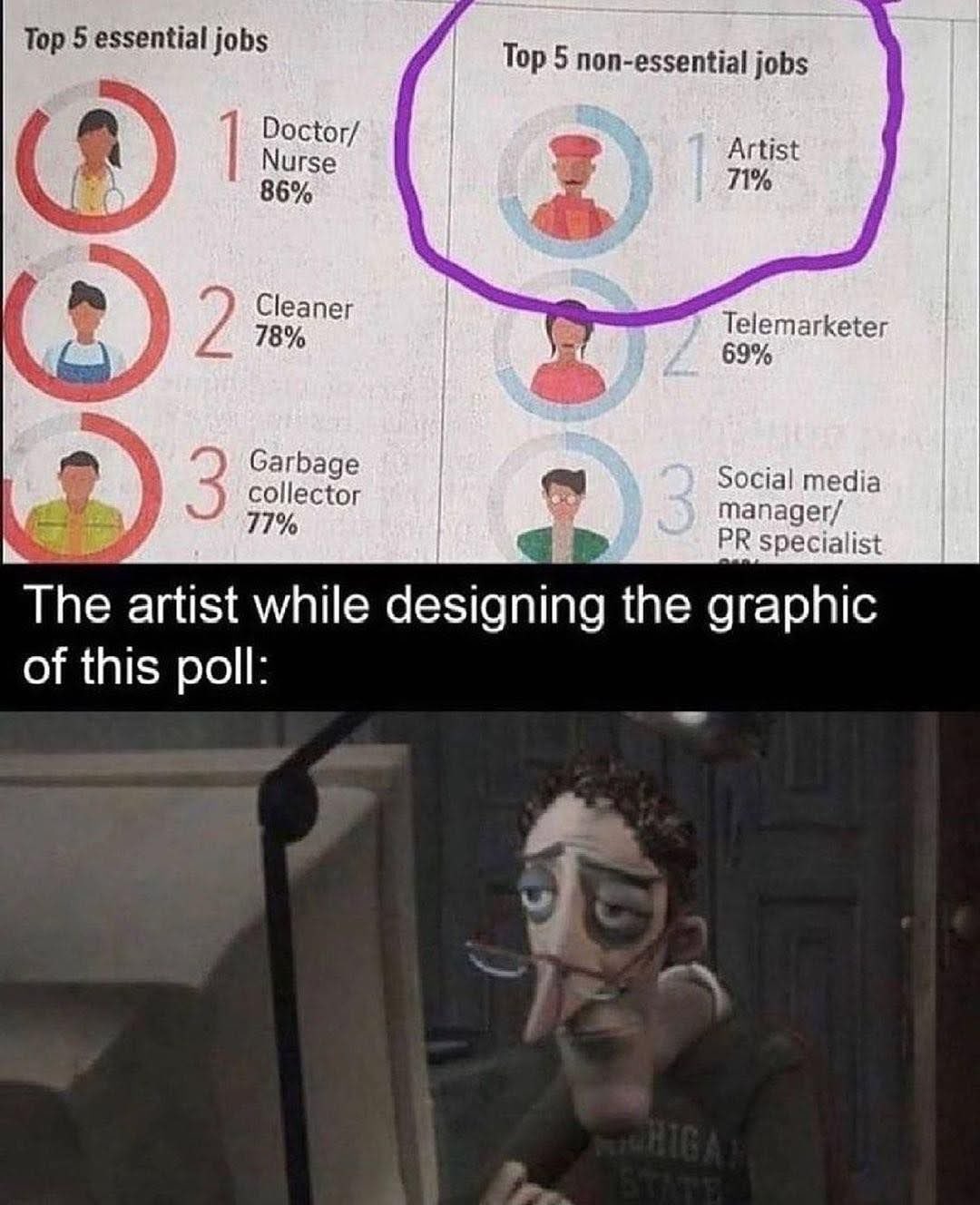this post was submitted on 24 Jan 2025
1082 points (99.2% liked)
memes
11227 readers
2424 users here now
Community rules
1. Be civil
No trolling, bigotry or other insulting / annoying behaviour
2. No politics
This is non-politics community. For political memes please go to !politicalmemes@lemmy.world
3. No recent reposts
Check for reposts when posting a meme, you can only repost after 1 month
4. No bots
No bots without the express approval of the mods or the admins
5. No Spam/Ads
No advertisements or spam. This is an instance rule and the only way to live.
Sister communities
- !tenforward@lemmy.world : Star Trek memes, chat and shitposts
- !lemmyshitpost@lemmy.world : Lemmy Shitposts, anything and everything goes.
- !linuxmemes@lemmy.world : Linux themed memes
- !comicstrips@lemmy.world : for those who love comic stories.
founded 2 years ago
MODERATORS
you are viewing a single comment's thread
view the rest of the comments
view the rest of the comments

Except for farmers humanity has gone quite a long time without them
Edit to clear up confusion about the wording: I meant that we need farmers, the rest not so much
Only in the professional sense, medicine and engineering as concepts of let's not have these people die of what we know to be preventable has been around a lot longer than agriculture.
I am not sure what your point is. Society will collapse if all the farmers stop doing their work. Seems pretty important to me.
I read it that way first as well but I think it's intended the other way: "for everyone except farmers" ...
Yeah, I believe the intended reading should have a comma after farmers, which would clarify that "them" at the end of the sentence is only referring to engineers, police/fire/ambulance, teachers, etc...
EDIT: actually now that I think about it I don't know that a comma alone would fix it, but I still support the comma there.
Yeah, I am not a native speaker but I think it could been a comma and clarify who "them" would be as in this sentence "them" would be farmers, not others.
The romans had engineers and fire fighting crews. Nearly every society has had some kind of police/army/guard to enforce laws. Farmers actually opened the door to most other jobs/careers because people didn't have to rely on themselves to grow or collect their own food which left more time to become an engineer, learn math, become a salesman or any other job that could be filled.
Big citation needed here. Many societies didn't have a professional army but rather armed citizens who went to war when needed and had other occupations otherwise. See for example the second amendment which wanted a "well regulated Militia" instead of a professional army. Also this is different from a police force which isn't universal either. Many watch each other or have rotating shifts or something which isn't the same as a police that necessarily stands above the law to enforce it.
this link goes into light detail of how laws were written and enforced in ancient times, starting with tribal or clan based blood fueds and eventually turning to a more societal run and funded system.
Very light detail. Even wikipedia is more critical and names the slave patrols as origin of policing in the US. Your source outright equates law and police which is very problematic. You can have a law and sets of rules in an egalitarian society with a nightwatcher system or something and no armed police force. According to wikipedia:
So police isn't as common place as your source makes it seem.
I haven't read it yet but James Scott wrote a book about societies in southeast Asia without government who don't "turn bloody quickly" whatever that might mean. Also Worshiping Power is a book I have read that's topical enough.